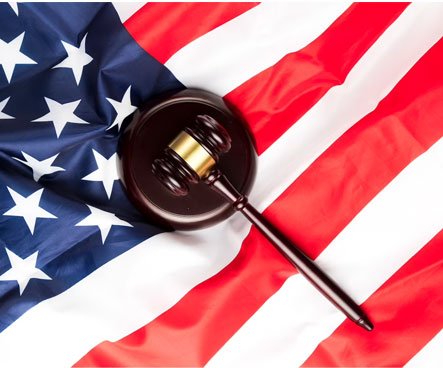Atlanta Healthcare Fraud Lawyer

Atlanta Healthcare Fraud Attorney
The Department of Justice takes healthcare regulations very seriously, which includes diligently pursuing any potential instances of healthcare fraud. This can leave numerous industry professionals and medical entities vulnerable to allegations of fraud, all of which can end up in civil or even criminal court. If you’ve been accused of engaging in fraudulent healthcare, a qualified Atlanta healthcare fraud lawyer can represent your case against the government.
At The Law Office of Lawrence J. Zimmerman, we work diligently to protect the rights of Atlanta residents facing serious healthcare fraud charges. We understand the severity of your situation and are prepared to represent and support you passionately. For legal counsel you can trust during difficult times, reach out to our healthcare fraud team today.
What Is Healthcare Fraud in Georgia?
Healthcare fraud entails using fraudulent representations or expressing false sentiments for the purpose of receiving financial gain from healthcare benefit programs in connection with providing or requesting payment for healthcare benefits, items, or services.
A “healthcare benefit program” refers to Medicare, Medicaid, federal programs, or any public or private healthcare insurance plans through which an individual is provided care, benefits, items, etc.
U.S. federal law prohibits any person who knowingly and willingly attempts or accomplishes to defraud a healthcare benefit program. This includes unlawfully obtaining any money or property within the possession of a healthcare benefit program in connection with the administering of or payment for healthcare services, benefits, or items.
Examples of Healthcare Deceit and Fraud
Healthcare fraud may take numerous different forms. These are just a few instances of fraudulent healthcare:
- Performing and billing for medical procedures or services that were not clinically necessary under the circumstances.
- Billing for medical care that was never given or for supplies that were never provided.
- Falsifying medical records so that clinically unnecessary tests, surgeries, or other procedures are justifiable.
- Billing for treatment or services that are more expensive than what was performed or administered in actuality. This is known as “upcoding.”
- Billing several procedure codes for a group of related procedures that are typically encompassed within a single code, otherwise known as “unbundling.”
- Misrepresenting the nature of the medical care, services, or items that were provided or conducted; misrepresenting the identity of the care provider.
- Billing twice for the same treatment despite it only being provided once; billing for a non-covered service as though it were a covered service.
The Anti-Kickback Statute in Healthcare Fraud
Anti-Kickback Statute (AKS) violations are among the most commonly investigated and charged forms of fraudulent healthcare activity. This federal statute legally prohibits any healthcare worker or organization from offering, participating in, or accepting any “kickback” or bribe in exchange for referring patients to specific items or services payable by Medicaid, Medicare, or other federal healthcare programs.
It is unlawful for either party involved in a hypothetical kickback transaction to knowingly and willingly generate business regarding drugs, supplies, or healthcare services payable by a federal program in order to receive or pay a reward or profit that is for individual benefit.
Kickbacks can include cash, credit arrangements, supplies, equipment, excessive rent payment or free rent, costly hotel stays and meals, excessive compensation for medical directorships or consultancies, gifts, and anything else of value, including intangible economic benefits.
Potential Defenses for Healthcare Fraud Accusations
There are multiple approaches your criminal attorney may choose to utilize when representing you in court. The strategy used will depend on the charges against you, along with other unique factors of the alleged fraud. Your defense lawyer may try to establish that the fraud was an innocent mistake that occurred while acting in good faith and without any intentions to defraud.
In some cases, your lawyer may assert that the government doesn’t have sufficient evidence to prove the alleged fraud violation. This often happens in instances where the government is accusing the defendant of performing and billing for a procedure that was not necessary. For these cases, the defense would most likely rely on the testimony of a medical expert or other professional qualified to speak to a procedure’s necessity.
There are also several defense possibilities for AKS violations; defensive arguments for this form of healthcare fraud are wise to include an element of advice from legal counsel as part of the explanation for the alleged fraud. This is because many anti-kickback offenses implicate an intricate business arrangement that was put into place fraudulently.
A defense attorney in Atlanta may aim to provide evidence that establishes the defendant consulted with counsel regarding the arrangement before pursuing forward and thus acted without deceitful intent.
Penalties Following a Healthcare Fraud Conviction
It’s difficult to estimate the specific penalties and their degree of severity if you are found guilty and convicted of a healthcare fraud crime. Influencing factors can include the extent of the fraud, if there were additional fraud charges or criminal violations, such as medical malpractice that resulted in significant bodily injury, and other potential elements of a healthcare fraud claim.
If convicted, you will likely face several years of prison. If the fraudulent violation yielded another party’s physical injury, you most likely will receive an even longer prison sentence. Convicted defendants must also pay heavy fines for each offense, some up to hundreds of thousands of dollars. Additionally, healthcare organizations found guilty are likely to pay much heavier fines.
It is also possible for a conviction’s punishment to include administrative penalties, such as being disqualified from participating in federal healthcare programs, along with other civil penalties.
AKS offenses are punishable by several years in prison and tens of thousands of dollars in fines per violation. Violations of the Anti-Kickback Statute are also punishable by administrative penalties, in addition to those applicable by the False Claims Act, and civil penalties, such as monetary fines for several tens of thousands of dollars. Regardless of the severity of your charge, it is imperative that you have a defense lawyer representing you in a healthcare fraud case.
The Federal False Claims Act and Georgia’s Taxpayer Protection Against False Claims
The False Claims Act is a federal statute that protects civilians from whistleblowing and filing “qui tam” suits when they help bring attention to and/or take legal action against healthcare fraud. A qui tam suit allows any person to file a claim on behalf of the government against a party they sincerely suspect is guilty of knowingly committing healthcare fraud.
The term “knowingly” implies that an individual acted with knowledge, with purposeful indifference, or reckless disregard for the truth or falsity of information on the part of the accused individual or group. The statute of limitations for filing a claim under the False Claims Act is six years from the date of the unlawful behavior or action. A qui tam case can be filed three years after the date the government knows or should have been aware of the illegal activity.
The state of Georgia has a similar statute called the Taxpayer Protection Against False Claims. Under this mandate, a citizen can take legal action against any person, group, or entity that knowingly presents or facilitates a false or fraudulent healthcare claim in exchange for approval or payment. This statute also covers state government healthcare benefit programs instead of only federally funded programs.
FAQs About Atlanta, GA Healthcare Fraud Law
Who Can Pursue a Healthcare Fraud Claim?
The Department of Justice investigates potential instances of healthcare fraud, acting as the plaintiff party in both civil and criminal court. Medicare fraud and other fraudulent medical claims are a form of fraud against the government, allowing them to file cases against alleged offenders. Private citizens are allowed to report genuine suspicions of government fraud without repercussion under whistleblower laws.
What Is Considered Medicaid Fraud in Georgia?
Medicaid fraud, as well as Medicare fraud or any healthcare fraud involving a public or private health insurance program, is a serious federal violation. Healthcare fraud is any instance of a medical care physician, provider, manufacturer, or other relevant entity or supplier, etc., intentionally misrepresenting or falsifying the justified need to provide or request payment for healthcare services, benefits, and supplies.
Do I Need a Defense Lawyer If I Was Accused of Healthcare Fraud?
There is no legal statute requiring you to hire an attorney. However, it is strongly advised that you seek the help of a criminal defense lawyer when facing any crime, let alone when accused of a serious federal violation such as healthcare fraud. It’s crucial to seek the services of a defense attorney who has experience handling federal offense cases as well as the complex mandates and regulations of healthcare law.
What Is the Federal Anti-Kickback Statute?
The Anti-Kickback Statute is a federal law that prohibits any healthcare workers, professionals, organizations, etc., from offering, soliciting, providing, or receiving kickbacks (bribes, rewards, etc.) in exchange for patient referrals to certain items or services payable by the government through federally funded healthcare programs. Kickbacks can include monetary payments, credit arrangements, gifts, and anything else for personal profit or advancement.
Let an Experienced Criminal Defense Lawyer Fight for Your Rights
If you’re a medical professional who’s been accused of healthcare fraud, allow a qualified attorney to represent you. At The Law Office of Lawrence J. Zimmerman, you can feel confident that your legal counsel is experienced in assisting clients in federal court and educated in healthcare law. Contact us to speak with an attorney regarding your case.
Office Location
Meet With A Lawyer
Schedule A Consultation
Fields Marked With An “*” Are Required









